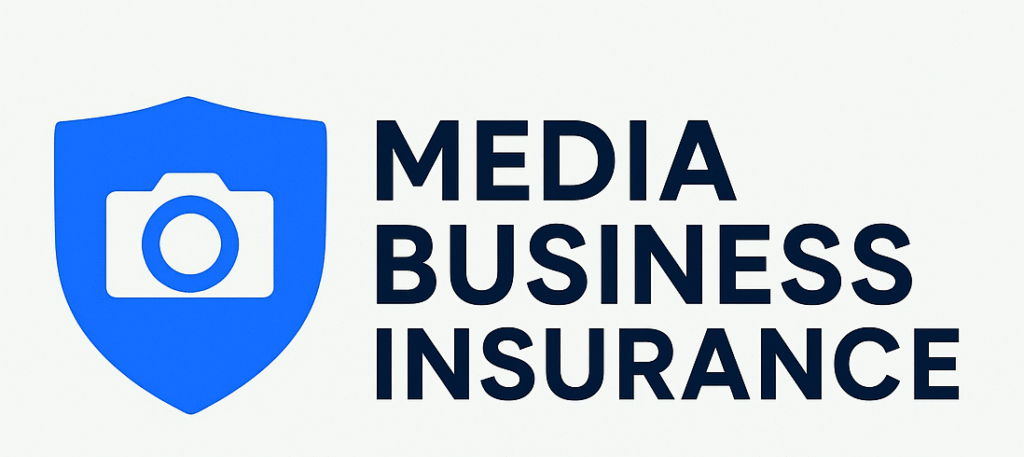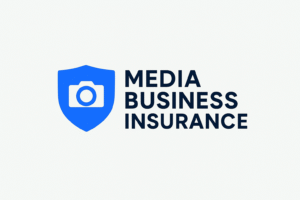Top 5 Lawsuits Media Companies Face (and How to Avoid Them)
by Media Business Insurance
The media industry is fast-paced, creative, and constantly evolving — but it’s also filled with legal risks. Whether you run a marketing agency, film production company, digital content studio, or social media management firm, even a small mistake can lead to a major lawsuit.
At Media Business Insurance, we help creative professionals protect their work, reputation, and bottom line from unexpected legal challenges. In this post, we’ll explore the top five lawsuits media companies face — and how the right media liability insurance can keep you covered.
1. Copyright Infringement Lawsuits
What It Is:
Copyright infringement happens when a company uses someone else’s creative work — images, videos, music, articles, or logos — without proper permission or licensing.
In the digital world, it’s easy to accidentally use copyrighted material, especially when clients demand fast results. Unfortunately, even an unintentional violation can result in thousands of dollars in legal fees and settlements.
Example:
A marketing firm uses a photo found online in a client’s campaign, only to later learn it was protected by copyright. The photographer sues for unauthorized use.
How to Avoid It:
-
Always use royalty-free or licensed content.
-
Train your staff on copyright laws and fair use policies.
-
Use content verification tools to confirm ownership before publishing.
-
Protect your business with Media Liability Insurance — it covers legal fees and damages related to copyright or trademark claims.
2. Defamation and Libel Claims
What It Is:
Defamation (spoken) and libel (written) occur when false or damaging statements are made about an individual or organization. In media, even a misunderstood comment or edited clip can lead to a costly lawsuit.
Example:
A PR agency publishes an article that unintentionally misrepresents a competitor’s business practices. The competitor sues for reputational damage.
How to Avoid It:
-
Verify all facts and sources before publication.
-
Avoid language that can be interpreted as misleading or malicious.
-
Review all marketing and media content through a legal or compliance filter.
-
Secure Errors and Omissions (E&O) Insurance — also known as Media Liability Insurance — which provides coverage for defamation-related claims.
3. Invasion of Privacy Lawsuits
What It Is:
This type of lawsuit occurs when a media company uses someone’s personal information, image, or likeness without permission. Even capturing footage in a public setting can raise privacy issues if consent isn’t properly obtained.
Example:
A production company films a promotional video featuring bystanders in a public area without obtaining their consent. One individual claims a violation of privacy and files a lawsuit.
How to Avoid It:
-
Always get written consent or model releases for any identifiable person in your work.
-
Use disclaimers where applicable.
-
Consult legal experts before publishing sensitive or personal content.
-
Protect your business with Professional Indemnity Insurance, which covers privacy-related claims and settlement costs.
4. Breach of Contract Claims
What It Is:
In the media industry, contracts form the foundation of most business relationships — from client agreements to licensing deals. A breach of contract happens when one party fails to meet its contractual obligations, intentionally or not.
Example:
A video production agency misses a delivery deadline due to equipment failure. The client sues for breach of contract and demands compensation for lost revenue.
How to Avoid It:
-
Always have clear contracts with defined deliverables, timelines, and payment terms.
-
Communicate proactively if a delay or issue arises.
-
Use project management tools to stay on track.
-
Obtain Business Liability Insurance that includes contract dispute coverage to protect your company from unforeseen legal costs.
5. Misrepresentation and False Advertising
What It Is:
Media companies are often responsible for promotional campaigns, branding, and public communication. If a claim made in advertising turns out to be inaccurate or misleading, it can lead to a lawsuit under false advertising or consumer protection laws.
Example:
A digital marketing agency creates an ad campaign with exaggerated product claims. Consumers file a lawsuit for false representation, holding both the agency and client liable.
How to Avoid It:
-
Ensure all claims in marketing content are verifiable and evidence-based.
-
Maintain documentation supporting all campaign materials.
-
Implement a review process before ad launches.
-
Get Advertising and Marketing Insurance, which helps cover legal defense costs for claims of false or misleading advertising.
The Role of Media Business Insurance
Media professionals operate in a high-risk legal environment. A single lawsuit can derail years of progress and damage your reputation.
That’s where Media Business Insurance comes in. Our specialized insurance policies offer protection against the most common lawsuits — from copyright infringement to defamation, breach of contract, privacy violations, and more.
Our Coverage Includes:
-
Media Liability Insurance
-
Professional Indemnity Insurance
-
Cyber and Data Breach Insurance
-
Commercial General Liability
-
Production and Equipment Coverage
Whether you’re a freelance filmmaker, ad agency, or digital media startup, we tailor insurance solutions that safeguard your creative business and allow you to focus on what you do best — creating.
Frequently Asked Questions (FAQs)
1. Why do media companies need insurance?
Because creative work carries legal risks. Even a small copyright or defamation issue can lead to large lawsuits. Media Business Insurance helps protect your finances, reputation, and operations.
2. What kind of insurance should media companies have?
Key coverages include Media Liability Insurance, Professional Indemnity, Cyber Protection, and Business Interruption Insurance.
3. Does Media Liability Insurance cover social media posts?
Yes. Our policies extend to digital, print, broadcast, and social media platforms — covering content you create or share online.
4. How much does Media Business Insurance cost?
The cost depends on your company size, services, and coverage needs. We offer affordable, customizable plans designed specifically for media professionals.
5. Can freelancers or small agencies get coverage?
Absolutely. Media Business Insurance offers flexible coverage options for freelancers, small studios, and large production companies alike.
Final Thoughts
Lawsuits are an unfortunate reality in today’s media-driven world — but they don’t have to threaten your success. With the right insurance and preventive measures, your business can stay protected and thrive in any creative landscape.
Media Business Insurance provides comprehensive coverage that keeps your vision, team, and reputation safe — so you can focus on what you do best: creating meaningful media.


